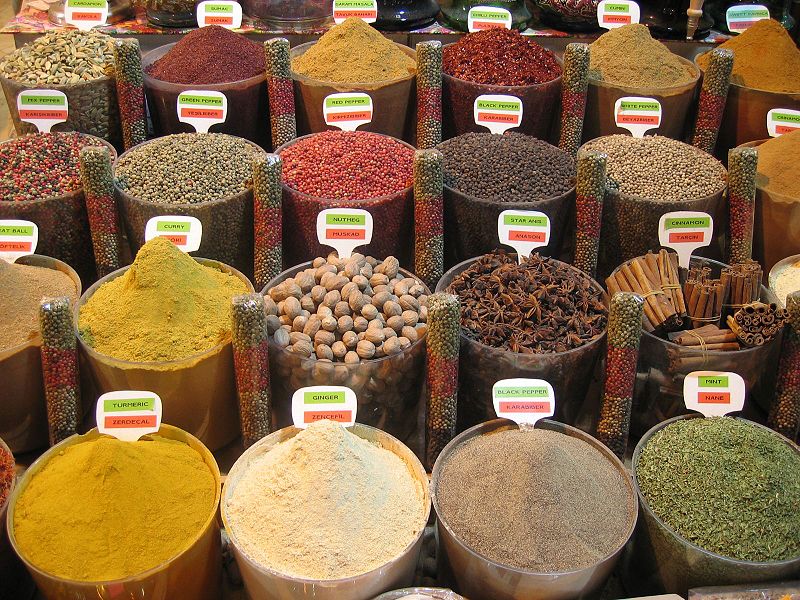Six Kinds of Currency That Might Emerge after the Collapse
By Joshua Krause | The Daily Sheeple

However, if we’re facing a truly devastating event, something that may kill millions and take decades recover from like a nuclear war or an EMP strike, then things like gold may go on the back burner for a while. It’ll still have some value, but when survival consumes your every thought, your priorities tend to change.
So if you want an idea of what items may be used as currency when the grid goes down, it would be wise to look into history to see what our ancestors used for bartering. These people lived their entire lives with a standard of living that was far lower than ours, and the commodities they prized were essential to their survival. If you want to call yourself “rich” after the collapse, here’s what you can look forward to accumulating.
Salt
Water often gets all the praise for being so essential to our survival, while salt gets to play second fiddle. In reality, salt is almost as important to our well-being as food and water. Nowadays salt can be had for a few dollars, but there was a time when it was worth its weight in gold, and was used as currency to pay Roman Soldiers. Not only was it valued for its health benefits, but it could be used to preserve food and cleanse wounds. Anywhere in the United States that is far away from the ocean will probably see the price of salt skyrocket after the collapse.
Fur pelts
During the Middle Ages, squirrel pelts became a common unit of exchange among the lower classes in Russia, and the Czarist government sometimes demanded their taxes be paid in pelts. In Finland the term for money (raha) used to be synonymous with “squirrel skin”, a throwback to when pelts were used as legal tender. And in the colonial New England, beaver pelts became so prized that they could be used in lieu of money.
There’s really no mystery behind this. While clothing is relatively cheap nowadays, before the industrial revolution a good jacket could set you back. And in places like Canada, New England, and Northern Europe, the clothes you wore were a matter of survival. So holding a handful of beaver pelts might as well have been a wad of cash.
Other Ideas Resources and Information
25+ Items to Stockpile for Bartering
By SHTF | Doomsday Survival 101
1. MRE (Meal, Ready to Eat) – Food will always be a precious commodity in emergency situations. MREs are individual food packets commonly used by soldiers in combat. It would be good to stock up on MREs because they have a long shelf life and are pretty easy to store.
2. Canned Food – Canned food, which includes canned meat, fruit, vegetables, and soup are also important items to stockpile for bartering. Since food is a basic necessity, it will always be in demand so you won’t go wrong in having a ton of canned food around. On the off chance that you won’t be able to use them as emergency barter items, you could still eat them yourself.
3. Dried Food – Dried food such as dried fruit and jerky are also useful barter items.
4. Bottled Water – Water is life. It’s as simple as that. Bottled water will be much in demand in times of crises. No further explanation is required here.
5. Honey– Honey is a natural antibiotic, antiseptic, it’s great for cooking, cleaning wounds, etc. It stores indefinitely and tastes great.
6. Bleach– can be used for cleaning, purifying water, supplies, and is a perfect disinfectant. It lasts virtually forever and makes a great barter item.
7. Water Purification Supplies- these can range from individual tablets to actual water purification systems/filters- access to clean water during a disaster is not always easy. If you are forced to grab a bug out bag and go- a few of these tablets can come in handy for scoring you some fresh food or other necessities
8. Baking Soda- This important item can be used in cooking, cleaning, homemade explosives, health related conditions, stomach ailments, etc. It makes a great shampoo, it’s dirt cheap to buy and easy to store.
See also: 16 SHTF Barter Items to Stockpile
http://www.shtfplan.com/emergency-preparedness/16-shtf-barter-items-to-stockpile_03152012
Video: THE TOP 10 BARTER ITEMS FOR A POST COLLAPSE WORLD
